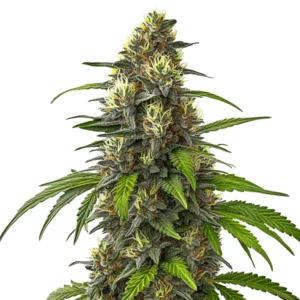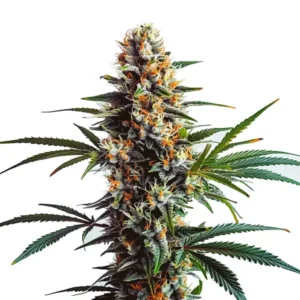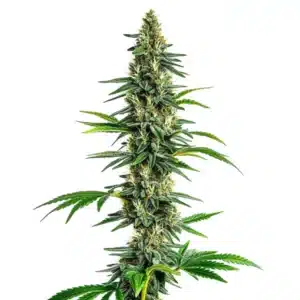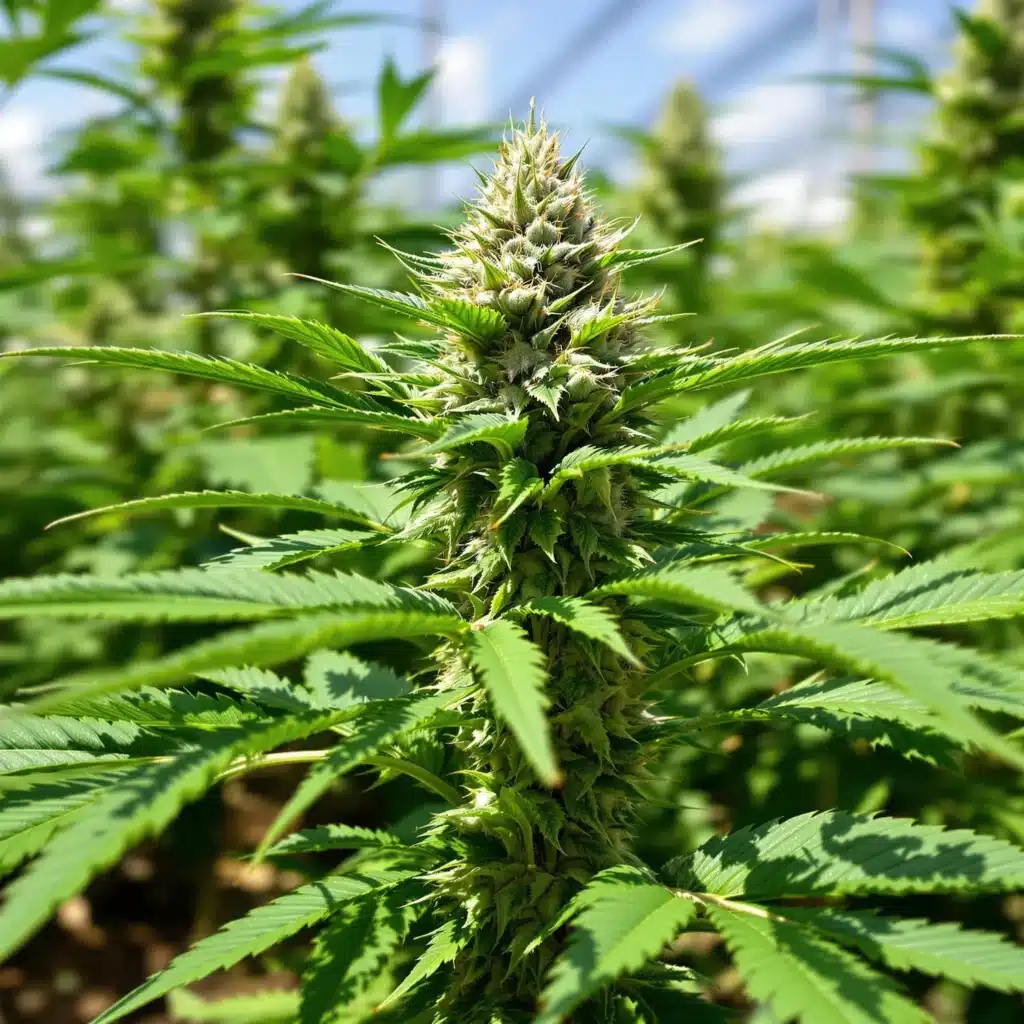
Best Bud Booster for Soil
Growing cannabis in soil is a time-honored tradition that offers exceptional flavor and robust yields when done correctly. One way to enhance the flowering phase and maximize your harvest is by using the best bud booster for soil. In this guide, we’ll explore everything you need to know about bud boosters, including their benefits, how to use them, and tips for getting the best results.
Bud Boosters for Soil
What Are Bud Boosters?
Bud boosters are nutrient products specifically designed to enhance flower development during the blooming phase of cannabis growth. These formulations are rich in phosphorus and potassium, which are critical for flower formation and density. They also often include micronutrients and organic additives to ensure optimal plant health. By targeting the flowering phase, bud boosters help growers achieve heavier, more resinous buds, enhancing both yield and quality.
Recommended Strains
Cafe Racer
|
|
THC | 25% (High) |
|
|
Type | Feminized |
|
|
Yield | Medium |
|
|
Phenotype | 30% Indica / 70% Sativa |
Cafe Racer Autoflower
|
|
THC | 19% - 24% (Medium) |
|
|
Type | Autoflowering |
|
|
Yield | High |
|
|
Phenotype | 50% Indica / 50% Sativa |
Bud boosters are especially effective when combined with a comprehensive nutrient program. They can make the difference between a mediocre harvest and an exceptional one by addressing specific nutritional needs during flowering. Using the best bud booster for soil ensures your cannabis plants receive the essential nutrients required for vigorous bud development.
Why Use Bud Boosters Specifically for Soil?
Soil-based grows benefit significantly from bud boosters as they compensate for potential nutrient deficiencies in the medium. Soil naturally contains organic matter, but its nutrient profile can vary depending on the quality and type. A good bud booster enriches the soil with phosphorus, potassium, and other essential elements, ensuring the plants receive what they need for peak performance.
The best bud booster for soil integrates seamlessly with organic and synthetic soil amendments. It works by enhancing the nutrient uptake of the plant’s root system, especially during the critical flowering phase. This ensures the plants develop dense, potent buds that meet the demands of both recreational and medicinal cannabis users.
Benefits of Using Bud Boosters in Soil Grows
Bud boosters provide targeted nutrition that enhances bud density, resin production, and flavor profiles. They’re especially effective in soil grows, where nutrient availability can vary. By incorporating a high-quality bud booster, growers can optimize their yields and ensure that their plants reach their full potential during flowering.
Promos & Deals
Key Ingredients in the Best Bud Boosters for Soil
Phosphorus and Potassium for Bud Development
These are essential nutrients during the flowering phase. Phosphorus promotes energy transfer within the plant, supporting flower formation, while potassium strengthens cell walls and enhances plant resilience. These elements work together to ensure healthy, dense buds, making them a cornerstone of the best bud booster for soil.
Micronutrients in Soil-Based Growth
Micronutrients such as magnesium, calcium, and sulfur play an important function in bud development. These elements aid in chlorophyll production, enzyme activation, and nutrient uptake. Bud boosters enriched with these micronutrients ensure that cannabis plants thrive during the flowering phase.
Magnesium, for instance, is vital for photosynthesis, while calcium strengthens cell walls, promoting structural integrity. Sulfur contributes to the synthesis of amino acids, which are building blocks for proteins. Together, these micronutrients ensure that cannabis plants develop dense, potent buds with vibrant terpene profiles.
Organic Additives to Enhance Soil Health
Many bud boosters include organic ingredients like kelp extracts, humic acids, and bone meal. These additives not only improve bud growth but also enhance soil structure and microbial activity, fostering a healthier growing environment. Organic options are particularly beneficial for growers looking to maintain sustainable cultivation practices.
Organic additives promote the growth of beneficial microorganisms, which break down organic matter and release nutrients into the soil. This natural process improves nutrient availability and creates a thriving ecosystem for your cannabis plants, resulting in higher yields and better-quality buds.
Benefits of Using Bud Boosters in Soil Grows
Improved Bud Density and Potency
Bud boosters enhance bud density by providing targeted nutrients that support robust flower formation. Dense buds are packed with cannabinoids and terpenes, delivering superior potency and flavor. Using the best bud booster for soil ensures that every plant produces high-quality buds that meet the expectations of even the most discerning growers.
Dense buds not only weigh more but also contain higher concentrations of cannabinoids like THC and CBD. This makes them more potent and desirable for both recreational and medicinal users. Additionally, dense buds are easier to trim and cure, making the post-harvest process more efficient.
Enhanced Terpene and Flavor Profiles
Terpenes are responsible for the unique aromas and flavors of cannabis. Bud boosters can amplify terpene production, resulting in a more aromatic and flavorful harvest. This is particularly important for growers aiming to produce premium-grade cannabis with distinct flavor profiles.
Enhanced terpene production not only improves the sensory experience but also boosts the medicinal properties of cannabis. Terpenes like myrcene, limonene, and caryophyllene have therapeutic effects, making them valuable for users seeking relief from stress, pain, or anxiety. By using a high-quality bud booster, growers can elevate the overall quality of their crop.
Increased Yields in Soil Grows
One of the primary benefits of using a bud booster is the potential for increased yields. By supplying plants with the nutrients they need during the flowering phase, growers can maximize bud size and weight, ensuring a more bountiful harvest.
Higher yields mean more product for consumption or sale, making bud boosters an essential investment for commercial and home growers alike. With the best bud booster for soil, growers can achieve professional-grade results, regardless of their experience level.
Types of Bud Boosters for Soil
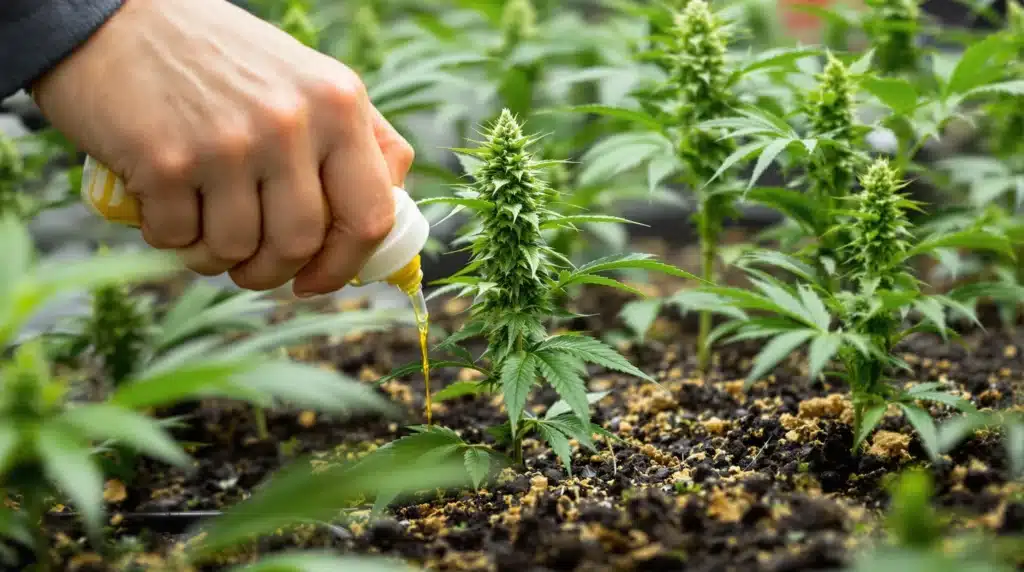
Organic Bud Boosters for Natural Growing
Organic bud boosters rely on natural ingredients to enhance flower development. These products are ideal for growers who prioritize sustainability and soil health. Common ingredients include bat guano, fish emulsion, and seaweed extracts, all of which provide essential nutrients in an eco-friendly way.
Organic boosters improve soil fertility and promote the growth of beneficial microbes, creating a healthy environment for cannabis plants. They’re also free from synthetic chemicals, making them a safer choice for growers and consumers concerned about environmental impact and product purity.
Synthetic Bud Boosters for Precision Feeding
Synthetic boosters offer precise nutrient formulations, making them a popular choice for growers seeking immediate results. These products are designed for maximum absorption and effectiveness, ensuring that plants receive the exact nutrients they need during the flowering stage.
Synthetic options are particularly effective in addressing specific nutrient deficiencies. Their precision and reliability make them a go-to choice for commercial growers aiming for consistent quality and high yields. However, they should be used carefully to avoid overfeeding and nutrient imbalances.
Liquid vs. Granular Formulas
Liquid bud boosters are easy to mix and apply, offering quick nutrient absorption. Granular formulas, on the other hand, release nutrients slowly, providing consistent feeding over time. Both options have their advantages, and the choice often depends on the grower’s preferences and growing conditions.
Liquid boosters are ideal for hydroponic systems or drip irrigation setups, while granular formulas are better suited for outdoor and large-scale soil grows. Both types can be highly effective when used correctly, ensuring that plants receive the nutrients they need for optimal flowering.
How to Choose the Best Bud Booster for Soil
Compatibility with Your Soil Type
Different soil types have varying nutrient profiles, so it’s essential to choose a bud booster that complements your growing medium. Conducting a soil test can help you identify nutrient deficiencies and select a product that addresses those specific needs.
Matching the bud booster to your soil type ensures that your plants receive balanced nutrition. For example, sandy soils may require more organic matter, while clay soils benefit from products that improve aeration and drainage. The best bud booster for soil will work harmoniously with your existing soil conditions.
Strain-Specific Nutritional Requirements
Some cannabis strains have unique nutritional demands. For example, high-yielding strains may require more phosphorus and potassium during flowering. Tailoring your choice of bud booster to the strain you’re growing ensures optimal results.
Researching your strain’s needs can help you select a product that enhances its natural characteristics. This personalized approach maximizes yield and quality, ensuring that your cannabis plants perform at their best.
Budget-Friendly vs. Premium Options
Bud boosters come in a range of price points, from budget-friendly options to premium formulations. While cost is a factor, it’s important to prioritize quality and effectiveness. Investing in the best bud booster for soil can significantly impact the quality and quantity of your harvest.
Premium products often contain advanced formulations with additional benefits like enhanced terpene profiles or improved soil health. However, budget-friendly options can still deliver excellent results when used correctly. The key is to choose a product that aligns with your growing goals and budget.
How to Use Bud Boosters in Soil Grows
Mixing and Applying Bud Boosters Correctly
Accurate mixing and application are crucial for maximizing the effectiveness of bud boosters. Always follow the manufacturer’s instructions and use precise measuring tools to avoid overfeeding. Proper application ensures that plants receive the nutrients they need without risking nutrient burn. Mixing bud boosters thoroughly before application ensures even distribution of nutrients. This is especially important in soil grows, where uneven feeding can lead to inconsistent plant performance. Regular monitoring and adjustments can help you
Advanced Techniques for Soil-Based Cannabis Cultivation
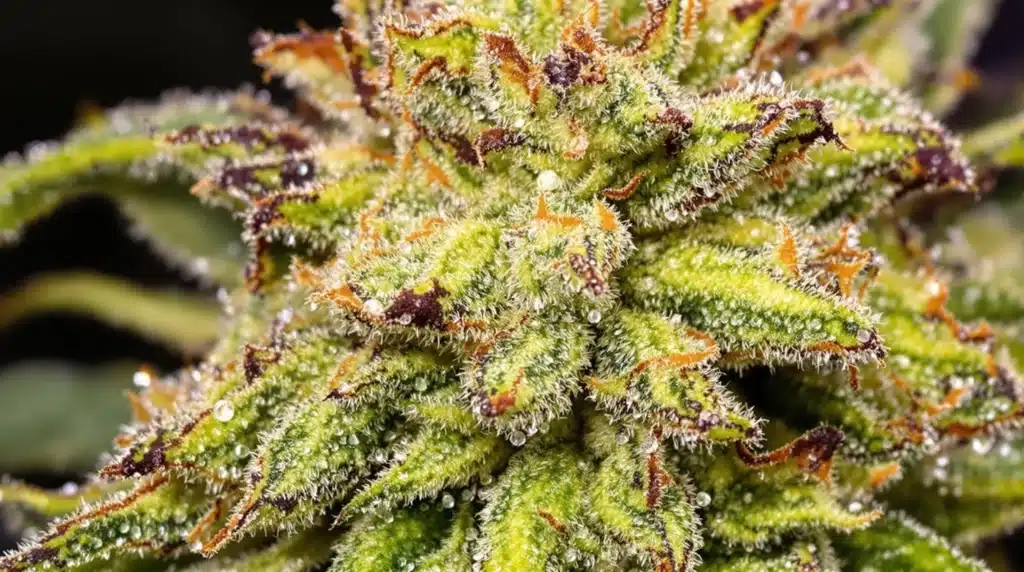
Pairing Bud Boosters with Organic Compost
Pairing the best bud booster for soil with organic compost creates a dynamic nutrient environment that supports explosive bud development. Compost enriches the soil with essential organic matter, improving its texture and water retention capacity. The combination ensures a slow release of nutrients, which is vital for consistent plant growth during the flowering stage. This synergy also fosters a healthy microbial ecosystem, which enhances nutrient availability and uptake.
For optimal results, incorporate compost into your soil during the preparation stage, ensuring an even distribution. When you start applying bud boosters, the enriched soil provides a solid base for plants to thrive. Regularly topping the soil with compost tea or additional compost layers throughout the flowering phase can further amplify the benefits, resulting in denser, more flavorful buds.
Incorporating Beneficial Microbes
Adding beneficial microbes to your soil enhances the effectiveness of bud boosters by improving nutrient uptake and root health. Mycorrhizal fungi, for instance, form a symbiotic relationship with cannabis roots, extending their reach and boosting nutrient absorption. These microbes also help break down organic matter, making it more accessible to plants.
When applying the best bud booster for soil, mix it with microbial inoculants to create a nutrient-rich environment that supports robust plant growth. Beneficial microbes also help plants resist stress factors, such as drought or pest attacks, ensuring healthier and more productive crops.
Maintaining Optimal pH for Nutrient Absorption
Soil pH plays a critical role in nutrient availability and absorption. For cannabis, the ideal soil pH range is between 6.0 and 7.0. Deviations from this range can lock out essential nutrients, rendering even the best bud booster for soil ineffective. Regularly test your soil’s pH using a reliable pH meter or test kit to ensure optimal conditions.
To correct pH imbalances, use natural amendments like lime to raise pH or sulfur to lower it. Consistent monitoring and adjustments help create a stable growing environment that allows your plants to fully benefit from nutrient applications. Maintaining this balance ensures the production of dense, high-quality buds with vibrant terpene profiles.
Common Mistakes with Bud Boosters for Soil
Overusing Boosters in Soil Grows
Excessive use of bud boosters can lead to nutrient burn, which manifests as yellowing or browning of leaves and stunted growth. Overfeeding not only wastes resources but also stresses the plant, reducing overall yield and bud quality. Following manufacturer guidelines for dosage and frequency is crucial to avoid these pitfalls.
It’s equally important to observe your plants for signs of overfeeding and adjust accordingly. Gradual increases in nutrient applications are safer and allow plants to acclimate to the changes.
Neglecting pH and Soil Quality
Ignoring soil pH and quality can negate the benefits of even the best bud booster for soil. If the soil is too acidic or alkaline, plants cannot absorb nutrients effectively, leading to deficiencies and poor growth. Regularly testing and amending soil conditions is a fundamental step in successful cannabis cultivation.
Soil quality also depends on the presence of organic matter and microbial life. Neglecting these factors can result in compacted soil with poor drainage and limited nutrient availability. Incorporating organic additives and maintaining a balanced pH creates an environment where bud boosters can truly shine.
Using Incompatible Nutrients
Combining incompatible nutrients can cause chemical reactions that reduce their effectiveness or harm your plants. For example, mixing certain synthetic fertilizers with organic boosters can lead to nutrient lockout or imbalances. Always check product labels for compatibility and follow recommended application schedules.
When using the best bud booster for soil, consider its formulation and how it interacts with other nutrients in your feeding regimen. Conducting a compatibility test on a small batch of plants can help identify potential issues before they affect your entire crop. Ensuring harmony between nutrients leads to a more productive and stress-free growing experience.
FAQs About Best Bud Booster for Soil
Can bud boosters be used in all soil types?
Yes, bud boosters can enhance growth in all soil types, but their effectiveness depends on the existing nutrient profile of the soil. Conducting a soil test before application helps identify deficiencies that the booster can address. Sandy soils may benefit more from liquid boosters due to their rapid absorption, while clay soils might require slow-release formulations to prevent nutrient buildup.
How often should I use a bud booster in soil grows?
Bud boosters are typically applied every one to two weeks during the flowering phase. However, the frequency depends on the product’s concentration and your plant’s specific needs. Always follow the manufacturer’s recommendations to avoid overfeeding. Monitoring plant health and growth can help you adjust the schedule for optimal results.
Are organic bud boosters better than synthetic ones for soil?
Both organic and synthetic bud boosters have unique advantages. Organic boosters improve soil health and microbial activity, promoting sustainable growth over time. Synthetic boosters, on the other hand, offer precise nutrient delivery for immediate results. The choice between organic and synthetic depends on your cultivation goals and preferences.



